Losing a loved one is a heartbreaking experience for anyone, but have you ever wondered how it impacts our furry friends? Cats, known for their independent nature, can also be profoundly affected by the loss of their human companions. As a responsible pet owner, it is crucial to understand how to support a grieving cat when their owner passes away. By providing the right care and attention during this difficult time, we can help ease their emotional turmoil and ensure their well-being. In this blog post, we will discuss practical steps you can take to help a grieving cat cope with the loss and find comfort amidst the pain.
Understanding a cat's grieving process
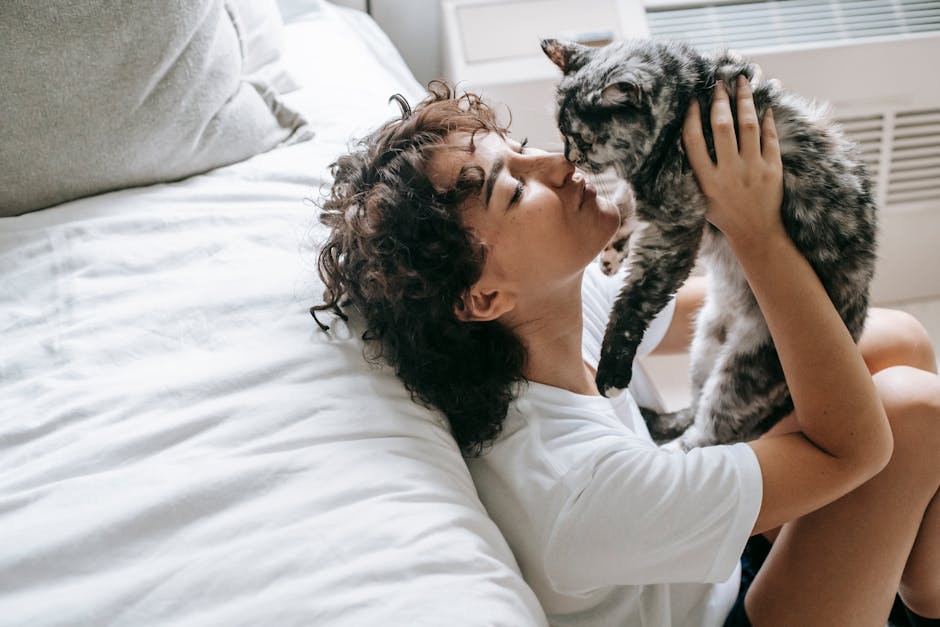
Understanding a cat's grieving process:
Cats, much like humans, are capable of experiencing a range of emotions, including grief, when a significant person in their life passes away. It is important for cat owners and those in their care to understand and support them during this challenging period. Here are a few key points to consider when helping a grieving cat:
1. Recognize the signs of grief: Cats may exhibit behavioral changes when they are grieving. They might become withdrawn, lose their appetite, sleep more than usual, or display unusual aggression or excessive meowing. It is crucial to observe their behavior closely and identify any changes that may be indicative of grief.
2. Provide a familiar and secure environment: Stability is essential for a grieving cat, so maintaining their familiar surroundings is important. Avoid making major changes in their living arrangements or introducing new pets during this time, as it may cause additional stress and confusion.
3. Maintain routines and schedule: Cats thrive on routine, and sticking to their established schedule can help them feel more secure during the grieving process. Ensure that feeding times, play sessions, and other activities continue as usual to provide a sense of familiarity and stability.
4. Offer extra affection and comfort: During their time of grief, cats may seek more attention and comfort from their human caregivers. Provide extra affection, cuddles, and reassurance to help them feel loved and supported. Gently petting your cat and engaging in interactive play can be beneficial in diverting their attention from loss.
5. Create a safe space for solitude: Just like humans, cats need their alone time to process grief. Set up a quiet and cozy area in the house where they can retreat and be alone when needed. This space should include their favorite blankets, toys, and a comfortable bed, allowing them to feel secure and find solace at their own pace.
6. Monitor their eating and drinking habits: It is not uncommon for grieving cats to experience a decrease in their appetite. Ensure that they have access to fresh water at all times and monitor their food intake. If the loss of appetite continues for an extended period, it is crucial to consult with a veterinarian to address any potential health issues.
7. Seek professional help if necessary: If your cat's grieving process seems prolonged or excessively distressing, it may be beneficial to consult with a veterinarian or a professional animal behaviorist. They can provide guidance, recommend techniques to alleviate your cat's grief, or suggest additional resources that can aid in their healing.
Remember, each cat is unique, and their grieving process may vary. Providing patience, love, and understanding is crucial during this time. By being attuned to their emotional needs and offering support, you can help them navigate through their grief and eventually find healing and comfort.
Recognizing signs of grief in a cat (behavioral changes, loss of appetite, etc.)
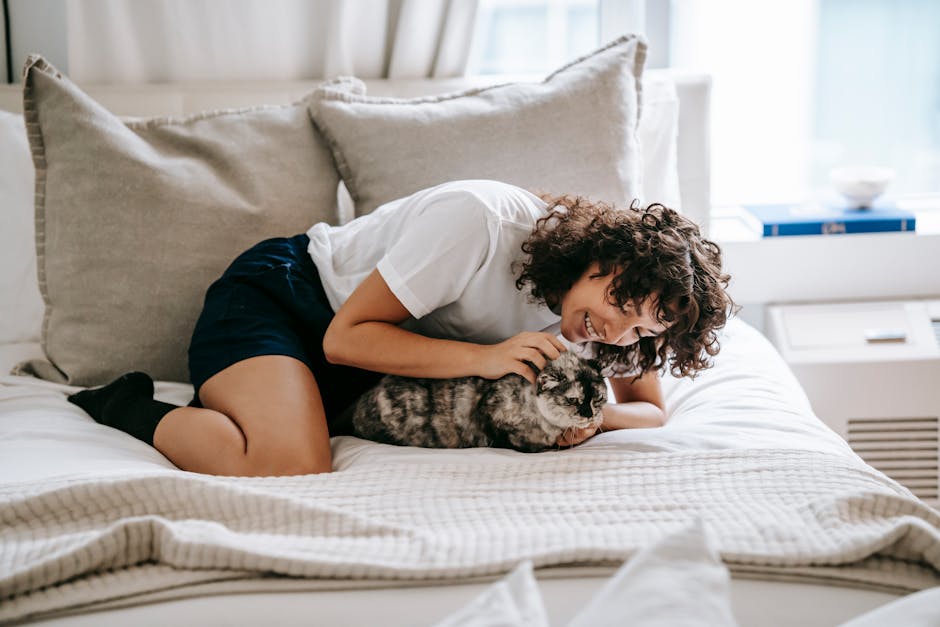
Recognizing signs of grief in a cat is crucial in providing appropriate support and care when their owner passes away. Cats, like humans, can experience a range of emotions and behavioral changes during the grieving process. While some cats may show subtle signs, others may exhibit more noticeable symptoms. By being attentive to these signs, you can better understand your feline companion's feelings and help them navigate this difficult time.
One of the most common signs of grief in cats is changes in their behavior. They may become more withdrawn, spending more time hiding or seeking solitude. Their normally playful and energetic nature may diminish, and they might show less interest in activities they once enjoyed. It's important to respect their need for space during this period, while still providing gentle reassurance and support.
Another noticeable sign of grief in cats is a loss of appetite. They may become disinterested in their favorite foods and show a decreased interest in eating altogether. This lack of appetite can be concerning, as it can lead to weight loss and potential health issues. If you notice your cat not eating for an extended period, it's crucial to consult with a veterinarian to ensure they receive proper nutrition and support during this difficult time.
Changes in sleep patterns are also common amongst grieving cats. They may experience difficulty sleeping or have disrupted sleep, leading to restlessness and fatigue. You may notice them being more vigilant or alert during the night or displaying signs of excessive grooming or self-soothing behaviors. Creating a calm and comfortable environment can help promote better sleep quality for your feline friend.
Grief can also manifest in physical symptoms, such as increased vocalization or excessive crying. Some cats may vocalize more frequently or exhibit signs of distress, seeking attention and comfort. Additionally, you may notice changes in their litter box habits, including changes in urine or stool patterns. Monitoring these changes and seeking veterinary advice if they persist is crucial to ensure your cat's overall well-being.
When a cat loses their owner, they may also experience separation anxiety or exhibit signs of confusion and disorientation. They may wander aimlessly or display signs of disconnection from their surroundings. Providing a stable and predictable routine can help alleviate some of their anxiety and provide a sense of security during this challenging time.
Understanding and recognizing the signs of grief in a cat is essential to provide appropriate support and help them through the grieving process. Although it may take time for them to heal, your presence, patience, and love will greatly contribute to their well-being during this difficult transition. Remember to consult with a veterinarian for expert guidance and advice tailored to your cat's specific needs.
Providing a calm and familiar environment for the cat (maintaining routine and comfort)
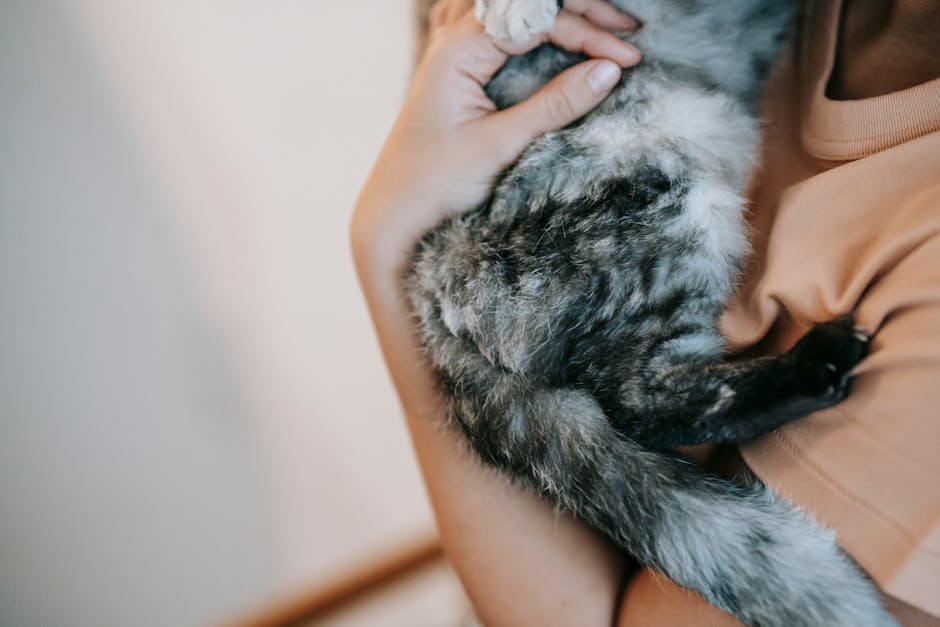
When a cat's owner passes away, it is essential to provide them with a calm and familiar environment to help them cope with the grief and uncertainty. Cats are creatures of habit and routine, so maintaining a sense of normalcy is crucial during this difficult time.
Firstly, try to stick to the cat's regular routine as much as possible. Feed them at the same time each day and ensure their litter box is clean and easily accessible. Familiar smells and sounds can help provide a sense of comfort and stability for a grieving cat, so keep their bedding, toys, and other belongings in their usual spots.
Creating a designated area for the cat can also provide a sense of security. Set up a cozy space with a comfortable bed or blanket where they can retreat to when they need some alone time. This spot should be away from any loud noises or high traffic areas in the house to ensure a peaceful environment for the cat.
Additionally, it's important to give the cat plenty of attention and affection to help alleviate their grief. Engage in gentle play sessions or spend quality time petting and cuddling with them. Providing this extra love and reassurance can help the cat feel loved and supported during this difficult period.
If the cat is particularly anxious or stressed, consider using pheromone diffusers or sprays specifically designed to calm cats. These natural, synthetic pheromones mimic the "feel-good" hormones that cats produce, creating a calming effect in their environment.
Remember, each cat is unique, and their grieving process may differ. Pay close attention to their behavior and look for signs of distress or withdrawal. If needed, consult with a veterinarian for further guidance and support to ensure the cat's wellbeing.
By maintaining a calm and familiar environment for a grieving cat, you can provide them with the comfort and stability they need during this challenging time.
Offering physical comfort and affection (grooming, petting, and cuddling)
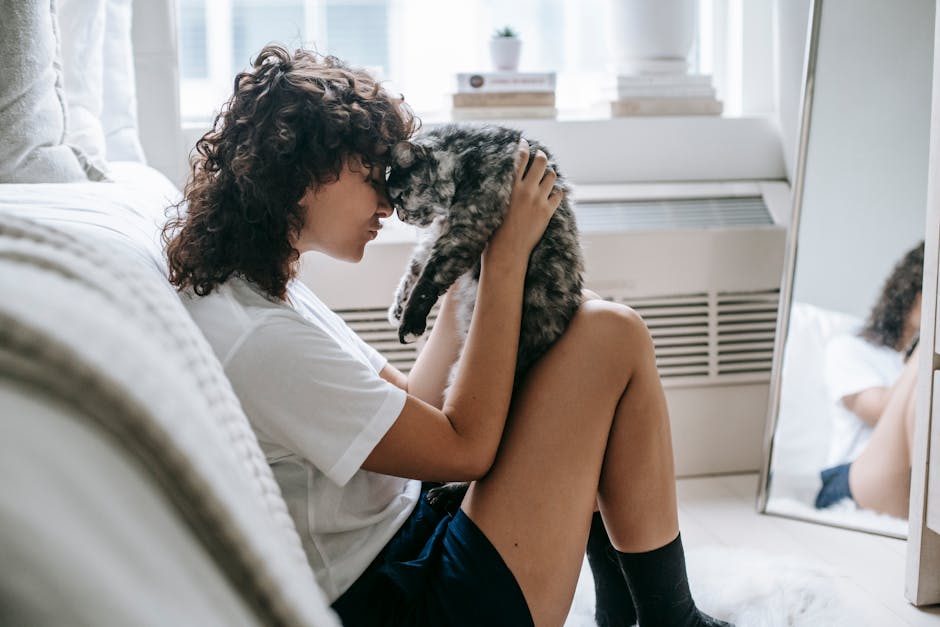
As a pet owner, it is not unusual to wonder what would happen to our cherished furry friends if something were to happen to us. The unfortunate reality is that life is unpredictable, and our beloved cats may find themselves grieving when their owner passes away. During this difficult time, offering physical comfort and affection becomes crucial in helping them cope with their loss.
Grooming: Grieving cats may experience changes in their grooming habits or struggle to groom themselves altogether. As their caretakers, it is important to step in and help them maintain their hygiene. Regular brushing sessions can be therapeutic for both you and your cat, providing a comforting routine and promoting a sense of normalcy. Gently groom their fur, ensuring you are using a brush that they are comfortable with, and take the opportunity to bond and show them that they are loved and cared for.
Petting: Physical contact through petting reassures grieving cats that they are not alone and provides them with much-needed comfort. Take the time to sit with your cat and gently stroke their fur, paying attention to their favorite spots and areas where they enjoy being petted. This simple act can help create a sense of security and alleviate anxiety during their grieving process. Remember to approach your cat with patience and respect their boundaries, allowing them to dictate the duration and intensity of the petting.
Cuddling: Offering cuddles and creating a safe space for your grieving cat can have a profoundly positive impact on their emotional well-being. Provide a cozy, comfortable spot where they can retreat and feel secure. This could be a soft bed, a favorite blanket, or even a secluded area in your home. Spending quality time snuggling with them, gently cradling them in your arms, or allowing them to curl up on your lap can provide a sense of warmth, connection, and reassurance.
It is important to note that each cat copes with grief differently, and their level of comfort with physical affection may vary. Observe their body language and reactions to ensure that you are offering the kind of physical comfort they prefer. Some cats may seek more contact, while others may need a bit of space and time to process their emotions. Being patient, empathetic, and responsive to their needs are essential in aiding their grieving process and helping them navigate through this difficult time.
Ultimately, offering physical comfort and affection to a grieving cat is a testament to the unconditional love and loyalty we share with our pets. By being there for them during their time of need, we can provide solace, strength, and stability, reassuring them that they are not alone and helping them heal as they adjust to their new reality.
Maintaining regular feeding and grooming schedules

Cats rely on routine and familiarity for their well-being, and this is especially important when they are grieving the loss of their owner. One way to help a grieving cat is by maintaining their regular feeding and grooming schedules.
1. Feeding Schedule: Cats are creatures of habit and thrive on a consistent feeding routine. After the loss of their owner, it is crucial to keep their feeding schedule as unchanged as possible. Stick to the same meal times and provide the same type and amount of food they are accustomed to. This will give them a sense of stability and control during this difficult time.
2. Grooming Routine: Grooming is not only essential for a cat's physical health but also provides emotional comfort. Continue regular grooming sessions, such as brushing their fur, cleaning their ears, and trimming their nails. Pay attention to their body language and slowly introduce any changes to their grooming routine, considering their comfort levels.
3. Familiar Scents: Familiar scents can offer solace to a grieving cat. Keep their environment as familiar as possible by not changing their bedding, litter box, or any other items with strong scents. The familiar scent will provide them with a sense of security and remind them of their previous connection with their deceased owner.
4. Provide a Quiet and Safe Space: Cats need a space where they can retreat and process their emotions when grieving. Arrange a quiet corner or a separate room where they can find solace. Ensure their litter box, food, water, and bedding are easily accessible in this space. It should be a comfortable and safe haven where they feel secure.
5. Patience and Reassurance: When dealing with a grieving cat, it is crucial to be patient and understanding. They may show signs of distress, loss of appetite, or changes in behavior. Offer them extra reassurance, gentle interactions, and comforting words. Let them set the pace and provide support as needed during this challenging period.
Remember, each cat's grieving process is unique, and it may take time for them to adjust and heal. By maintaining their regular feeding and grooming schedules, you can provide a stable and comforting environment for them to cope with the loss of their owner.
Engaging in playtime and interactive activities to distract and uplift the cat's mood
Engaging in playtime and interactive activities can be a helpful way to distract and uplift a grieving cat's mood after the loss of their owner. Just like humans, cats also benefit from participating in play and exercise to release pent-up emotions and reduce stress.
1. Interactive toys: Invest in interactive toys that will keep your cat physically and mentally stimulated. Toys like puzzle feeders, treat-dispensing toys, or interactive play mats can offer a form of play that stimulates their hunting instincts while also rewarding them with treats. These toys will help redirect their focus and engage their mind, enriching their overall well-being.
2. Feather wands and string toys: Cats are natural hunters, and interactive toys like feather wands or string toys mimic their instinctual prey drive. Engage your cat in playtime sessions by moving the toy in a way that imitates the unpredictable movement of prey. This type of play will encourage them to pounce, chase, and swat, providing a healthy outlet for their energy and emotions.
3. Laser pointers: Laser pointers can be an excellent tool to engage your cat in play. The laser light mimics the movement of small prey, sparking their hunting instinct. However, it is important to remember not to shine the laser light directly into your cat's eyes to avoid causing harm. Always end the play session by redirecting the laser's light to an appropriate target, such as a toy or a treat.
4. Scratching posts and climbing trees: Providing your cat with appropriate scratching posts and climbing trees not only serves as an outlet for their natural behavior but also offers a form of physical exercise. Climbing and scratching help cats stretch their muscles and release tension. Place the scratching posts or climbing trees near areas where your cat spends most of their time, such as by a window or near their favorite resting spot.
5. Dedicated playtime: Set aside specific times each day to engage in interactive play with your grieving cat. This structured playtime will provide them with a predictable routine and something positive to look forward to. Engage in activities that your cat enjoys the most and observe their preferences, whether it be chasing a ball, wrestling with stuffed toys, or batting at a hanging toy.
Remember, patience is key. A cat's grieving process may take time, and they might not immediately respond to playtime. Provide a safe and comforting environment, and gradually introduce play and interactive activities. Playing with your cat regularly can help distract them from their grief, improve their overall mood, and create a positive bonding experience between the two of you.
Introducing new comforting elements (such as a cozy blanket, familiar scents, or favorite toys)

Introducing New Comforting Elements: When a cat experiences the loss of its owner, it can be an incredibly challenging and distressing time for them. To help ease their grief and provide comfort during this difficult period, it's important to introduce new elements that can provide a sense of security and familiarity.
One of the first comforting elements to consider is providing a cozy blanket or bed for your grieving cat. Having a soft and comfortable spot to rest can help create a sense of security and provide them with a safe space to retreat to when needed. Ensure that the blanket or bed is clean and free from any scents that may cause additional stress or confusion.
Incorporating familiar scents into their environment can also be beneficial for a grieving cat. This can be achieved by using items that carry the scent of their late owner, such as a worn t-shirt or bedding. Placing these items in areas your cat frequents, like their sleeping area or favorite spot, can provide a source of familiarity and reassurance.
Favorite toys can also play an essential role in helping a grieving cat. Toys can serve as a distraction and provide a sense of normalcy during the grieving process. Ensure that your cat has access to their preferred toys, so they can engage in activities that bring them joy and help them cope with their emotions.
Furthermore, it's crucial to allow your cat to adjust to these new comforting elements at their own pace. They may initially show hesitation or disinterest, but with patience and gentle encouragement, they may gradually seek comfort from these items. Observe their behavior closely and adjust accordingly based on their individual needs.
Remember, every cat is unique, so it's essential to be attentive and responsive to their reactions. While introducing new comforting elements can provide solace, it's equally important to provide them with love, attention, and a stable routine during this challenging time.
By incorporating cozy blankets, familiar scents, and favorite toys into their environment, you can help a grieving cat feel more secure and supported. These elements can act as a source of comfort and aid in their healing process, as they navigate through their emotions and adjust to life without their beloved owner.
Gradually introducing socialization opportunities with other pets or humans (if applicable)
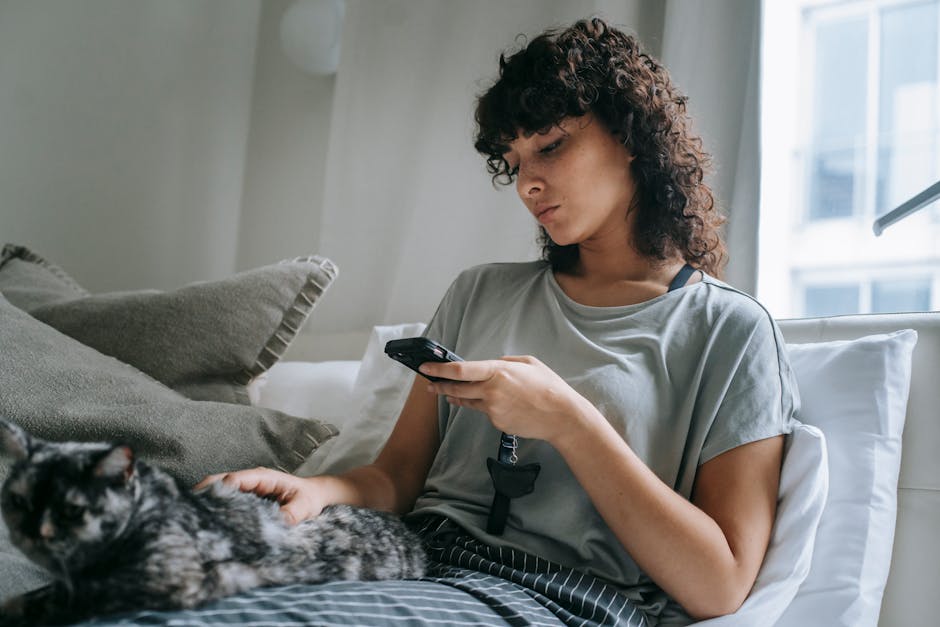
Gradually introducing socialization opportunities with other pets or humans (if applicable):
When a cat experiences the loss of its owner, it can greatly impact their emotional well-being. To help a grieving cat adjust to life without their human companion, it is crucial to gradually introduce socialization opportunities. This process allows the cat to feel supported and may eventually help them form new connections with other pets or humans. Here are some tips on how to approach this gradual socialization:
1. Respect their boundaries: Understand that each cat copes with grief differently. Some may prefer solitude initially, while others may seek comfort from other pets or humans in the household. Respect your cat's space and let them dictate the pace of their socialization process.
2. Create a safe environment: Provide a safe and peaceful area in your home where the cat can retreat to if they feel overwhelmed during socialization attempts. This could be a cozy corner with their bedding, toys, and a scratching post. Ensure that this space remains undisturbed and accessible at all times.
3. Start with familiar faces or scents: If your cat is bonded with other pets in the household, slowly reintroduce them in a controlled manner. Begin by allowing brief supervised interactions, and gradually increase the duration as the cat becomes more comfortable. Additionally, offering familiar scents such as blankets or clothing that belonged to the deceased owner can provide a sense of security and familiarity.
4. Encourage positive associations: Engage in activities that create positive associations with socialization experiences. Use treats, interactive play, or grooming sessions as rewards for the cat's active engagement with other pets or humans. This will help them associate these interactions with enjoyable experiences.
5. Seek professional guidance if needed: If your cat is struggling to adapt or shows signs of prolonged distress, it may be beneficial to consult a veterinarian or an animal behaviorist. They can provide specialized guidance, offer suggestions tailored to your cat's individual needs, and help facilitate the socialization process.
Remember, each cat's grief journey is unique, and it is essential to be patient and understanding during this time of adjustment. Gradually introducing socialization opportunities allows the grieving cat to heal at their own pace while fostering new connections that can provide the support and companionship they need.




